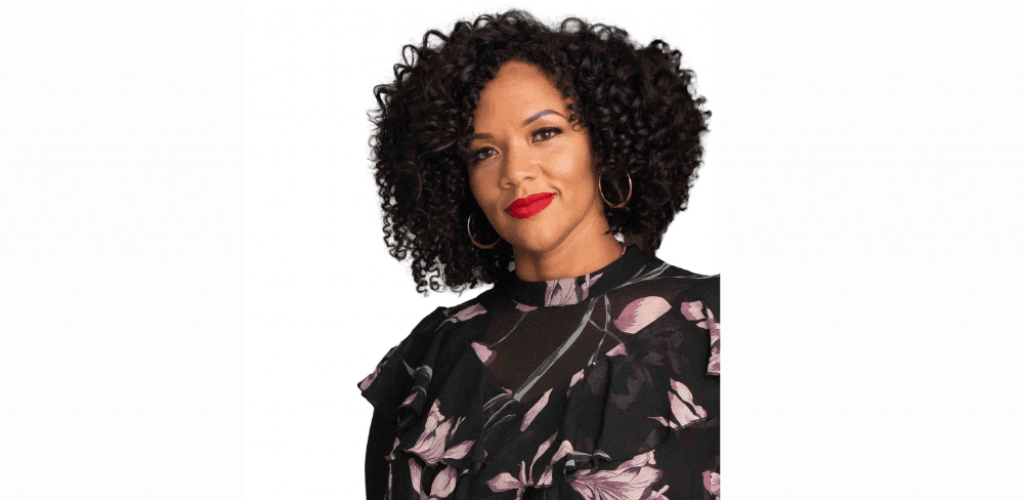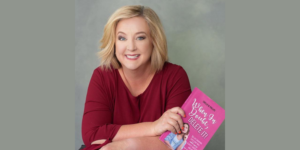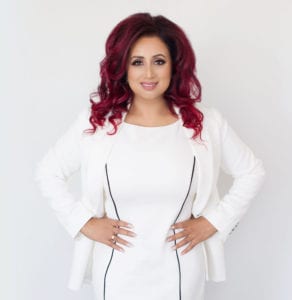Raj Girn: In the second week of March, where our theme is Media and Communications, this week’s 2-part series is entitled “Today’s Most Effective Social Media Strategies That Work for Businesses”. My guest is Corporate Social Media Trainer & Online Personal Brand Strategist, Cher Jones. Here’s a bit about her. As the founder of Socially Active Training, she leverages over 20 years of PR, marketing, and broadcasting experience to help professionals, leaders, and consultants develop a credible and strategic online presence while teaching them how to use social media at work for work. Her passion, knowledge, and expertise have many referring to her as one of North America’s leading experts in online personal branding for professionals.
She has worked internationally with a wide variety of organizations that include CBC, Rogers Communications, BlackBerry, The City of Toronto, The Ontario Ministry of Education, and the UK Trade and Investment, to name a few. Cher is also the host of a weekly LinkedIn live stream show called #JustAskCher LIVE, where she offers tips and advice to help you develop a powerful and professional brand online.
Please welcome to the show, Cher Jones.
Here is Part One of our conversation:
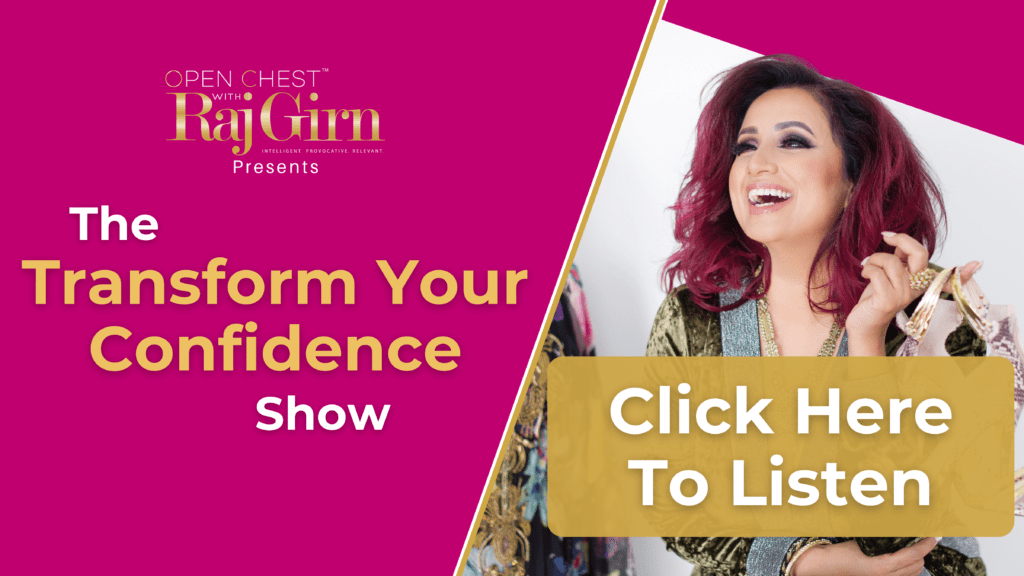
Raj Girn: Cher, what a pleasure to have you on. I’m really excited to deep dive into this conversation. I mean, everybody is on social media, everyone thinks they know social media. But, it’s like the wild, wild west for those people who aren’t initiated. We know this because everyone is posting everything under the sun and a lot of people don’t have a strategy around it. Why I’m interested in having this conversation with you is, at the end of the day, when you put yourself out there, there needs to be an intention and a purpose behind it. And you really believe in that. So, welcome to the show. And I’d like to just dive right in if you’re comfortable with that.
Cher Jones: I am absolutely comfortable. You’re making me feel right at home. So let’s do this.
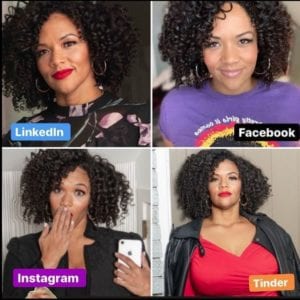
Let’s do this. OK, so let me start with this. Let’s just start from the beginning. Let’s think that the people that are on don’t know so much about social media. So I want to do a bit of a preface before we get into the business use of social media. So, Cher, why do you believe that social media has taken over the way that we communicate with everyone in our lives today, whether it’s personal or professional, even intimate? If you keep out factoring in the necessity factor around the pandemic-induced lockdowns because let’s talk about that a little bit later on in the show. Why do you feel that social media has taken over the way we communicate today?
It’s just because it’s literally communication in 3-D. We can literally see what’s happening. We can connect. There’s the whole science behind social media as well as far as the dopamine hits that we get when we hear that little ding or whatever it is, we see the lights go up or we see people responding. We see that little bubble talking for us. And then all of a sudden we are connected. But then on a human level, you got to take a look at the fact that you are now privy to a lot of experiences that you wouldn’t necessarily be privy to. It could be as simple as let’s see what’s going on behind me right now. Before we were just left to describing it and our own memories to hope that we could tell everything, and now we could, literally it’s like the show and tell.
And then that level of connection especially as the social in itself, have advanced so much. There was a time when it was just messaging. Way back in the days it was just a message, is just text. And then we could send links and pictures. That was a big deal. Now we could do a video and that was a big deal. Now we can speak to each other live like we’re doing right now. It has allowed you to be anywhere you want to be with somebody else, as a result of social media. So that’s just game-changing. Whether it is personal or professional, you can bring clients in, you can bring your people into your personal life. You have an intimate life where people bring people in socially speaking at an intimate level. So it’s just this new access, is 3D access to life.
“It has allowed you to be anywhere you want to be with somebody else, as a result of social media. So that’s just game-changing. Whether it is personal or professional, you can bring clients in, you can bring your people into your personal life. You have intimate life where people bring people in socially speaking at an intimate level. So it’s just this new access, – 3D access to life.” ~Cher Jones
Wow. You know, honestly, couldn’t have put it better myself. And I don’t think that I’ve ever heard anyone put it as good as that. So thank you so much for that. Folks, if you’re just joining us, I am talking to Cher Jones. She is a social media trainer and she’s also a personal branding coach. She’s based here out of Toronto. Cher, if anybody wanted to get a hold of you, how can they do that?
Always LinkedIn first. That is the best spot. A lot of entrepreneurs make this mistake, they send people to their website, which is great. But if we think about what we just talked about, that idea of being able to connect immediately, you send them to your number one social spot. That’s where you need to send them to, I think, for most professionals, even if it’s not their number one spot, LinkedIn. Just `look me up on LinkedIn, I’m easily findable, just look me up. And I think that opens the opportunity for a conversation as opposed to just an `oh, that’s nice` and keep it moving.
Cher Jones on Linkedin: https://ca.linkedin.com/in/itscherjones
So that’s a great point that you made, because it’s through LinkedIn, me following you and me listening to your lives there on LinkedIn, that I just popped into your inbox and said “hey” and here we are today. So you’re completely correct. That’s your spot. And folks, if you’re listening to what Cher saying, if you are an influencer and IG is your spot, send people to DM you there. If you are a different kind of person, maybe you’re a video-making person, maybe you want to send them to one of those types of platforms.
It’s really interesting what you’re saying. Again, it comes back to what I said right at the beginning, folks. The intention of use of the communications platform is really important to understand where you need to be as the expert you are. So Cher, let me ask you this: what do social media platforms bring to relationships that perhaps traditional forms of media don’t? I feel that you’ve answered that question, but if there’s anything you feel that you want to add, I’d love to hear it.
I would say it’s accelerated trust. Because now that person is how they treat you, it’s an extension of someone being there face to face. Let’s not separate a digital world from a physical world, because it is the same thing. We are using it to do the same things as if we were right in the same room with each other. So, how you treat people online is how you treat people in real life. That either accelerates a relationship or it can degrade a relationship as well. So it’s one of those things that we have to continue to recognize that this is just an extension of who we are. It’s a part of us, what we put out there online. Yes, often it is a very curated approach, and the more authentic you can be, strategically, the better. But because at the end of the day, you’re going to have to show up and people are going to have to figure out that you are the same person or you’re not.
“How you treat people online is how you treat people in real life. That either accelerates a relationship or it can degrade a relationship as well. So it’s one of those things that we have to continue to recognize that this is just an extension of who we are. It’s a part of us – what we put out there online.” ~Cher Jones
That’s really great that you just said that because, you can’t fake who you care so much if you’re in a conversational style of live video format, which is something new, you do this every single week. You go live on LinkedIn to give your advice and to answer questions. And at some point in the video, you can curate it and you can play with a persona that you want to be perceived as. But when you’re going live, when you’re interacting with people, at some point, the real you does emerge because you can’t always be on an avatar that isn’t succinct to the inherent DNA of the person that you are.
Let me tell you, OK? The real you show up when you get lipstick on your teeth. I love red lipstick and ithat really shows up real quick, or the real you shows up when you spill water on your computer while you are broadcasting live. All of a sudden whatever facade you think you had, you have to deal with what’s happening in the moment or when you see in the comments they share, and you see there’s red lipstick on your teeth, then you see the time stamp of that comment – that was 12 minutes ago. And you’re like, oh, my gosh!
I’ve kept that on my YouTube channel because I think it’s funny, but it really is. That’s like “get ready for primetime” because you do need to show up. And then, when people meet you and if you are able to get to that place of you, and trust me it takes time, people don’t recognize that as well because there are so many things where it takes time with the comfort of using the technology. So it takes time. There’s a whole imposter syndrome out there, putting yourself out there and owning your awesome. There’s also that wanting to make sure people take you seriously and all that stuff comes into play. But then at the end of the day, when people get to know you, that’s when they’re doing business with you. It’s not the facade. It’s because they trust you.
Yes. And that’s the big thing here. I think that underlying reality is something that hasn’t changed since the beginning of media, from scrolls and books, and TV and newspapers to the world we’re sitting in today. That’s always been the one thing that people have tried to accomplish is that connection. So let me ask you this, though. Until social media came into existence, people’s intention with media from a consumer perspective was to acquire news, views, knowledge, entertainment, and information about consumer goods through advertising. How has social media expanded on that relationship between media outlets and the consumer? What would you say?
Well, interestingly enough, I started my career in broadcast journalism, so I completely understand what you’re saying as far as that. This is how we came into existence and started interacting and engaging in a one-way perspective. So we were watching, we were acquiring the information and digesting it, talking to the people around us if there were there or on the phone or whatever. But we would have to, if you wanted to communicate with the people that you see, you literally have to write them a letter. And later send them emails or perhaps pick up the phone and call the Station A Toronto, CTV or whatever station around the world. There was always Burbank, California. You know, The Price Is Rigt. You could send them an email or a snail mail. And then all of a sudden, with the advent of, I would say live streaming, I think that was what changed the game there, to actually the two instances. Live streaming definitely.
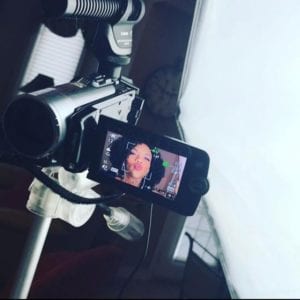
I was an early live streamer. In fact, way back when Google Hangouts was a thing and they had this Google Hangouts on air. But the way that I looked at it and I had a show with my cousin called the `Laurie and Cher Show`, the way we looked at it like this is TV on our own terms. But what we recognized is it’s not just TV. The third co-host is the audience. They are participating and they have the option of interacting so that immersion of or the inclusion of your audience now has to be a thing. And even if it’s not on a live chat, we’re seeing now how TV has integrated Twitter or, especially comments on Twitter, we see that those two work really well together. And, remember when the show ‘Scandal’ first came to broadcast. We’re talking in like maybe 2017 somewhere around there, I don’t know. Anyway, when that happened everybody was tweeting their live-tweeting as that was happening. So that became part of the immediate conversation and it was one of the reasons why it was a great show, but it also propelled it to a whole new level because broadcasters are always trying to find a way to get people to watch live, so you can watch the ads. It’s just participatory like media is now participatory. It’s not just consumption-based. I guess that’s a great way to sum it up.
Yeah, that’s the key right there. What you said there. That’s a great takeaway, folks. I hope you guys are scribbling away. And if you’re not and you’re just joining us, I want to make sure that you guys do take the opportunity to just rewind this back from the YouTube channel, or if you’ll listen to it on the podcast, just rewind it back and come over to The Open Chest Confidence Academy blog. It’s all there. So whichever way is easier for you guys to come to us and get these words of wisdom, this deep dive that I have with the fabulous Cher Jones, who is talking to us, not just about social media, but just about the entire landscape of the evolution of communications.
It’s a great lesson for anyone out there that doesn’t really know why communications need to be an intentfull, engagement opportunity. And people don’t realize that it’s an opportunity missed if you don’t really understand why you’re there and what you’d like to get out of it, or what you would like to share with people. So, let me dive a little deeper into that with you Cher. I want to ask you this. The big difference between traditional media communications and social media communications and why the latter has changed the industry, even for traditional media to have to step it up. And you’ve just talked about how that marriage between broadcast TV and watching live and commenting live with Twitter, which actually bought Twitter back.
So my question is, its entire premise of success is predominately based on two criteria. So one is connecting to this social media and its advantage over traditional media, connecting with the consumer rather than informing the consumer. So you just finished talking about that. And that’s the advocation of storytelling. So I do want to tap into that a little bit as the main driving force of social media. So that’s one. We’ll come back to that in a moment. And the other one is being able to find the consumer where they already are, so it’s a one-step process, . Where with TV and newspapers, magazines, you have to go somewhere to get it. So it’s a two-step process.
With all that preface, here’s my question for you. As we getting ready to talk about the impact of social media on business, the two criteria – the connection with the consumer through storytelling and the one-step versus two-step, so you get them where they are rather than try and coerce them to come to you. How have these, generally speaking, made it easier to create relationships across the board. So that we can encapsulate everything that we’ve thus far talked about, and then we’re going to head into the conversation about using it and incorporating it into the business. What are your thoughts? Give me your round up there.
Well, it’s the desire to know more. It’s the desire to see more, is the desire to experience more. So what we’re seeing now with this traditional medium that has allowed us to extend our reach further and our view further. We want to now is not just to see the finished product. We want to go behind the scenes and see what’s happening, whether it’s a show or see what a celebrity is going through or a politician is going through. We want to see that, or even let’s recognize now as a landscape that is definitely changing – its an influencer. So you could be whatever. You don’t have to be endorsed by Hollywood, to be a celebrity. It’s one and the same. But that authenticity ….this is why influencer marketing is taking off. Even if we bring it back to just outside of that, this is perspective. This is like we’re seeing people we trust and grow a relationship based on the amount of content we consume through them that seems to be authentic and original, and not necessarily original, but just authentic and meeting our needs, are answering our questions like how does this work? Does this work for me? And I love it!
“We’re seeing people we trust and grow a relationship based off of the amount of content we consume through them, that seems to be authentic and original, and not necessarily original, but just authentic and meeting our needs” ~Cher Jones
The silliest thing I bought the other day and was so random. I’ve never followed Britney Spears in my life. Then I followed her. After that, I saw the documentary come out, and then she posted this thing about Kinetic Sand, she was just playing with Kinetic Sand. It’s just like the sand that spreads out, is fun and you could just get lost in playing with it. Why did I go out? I saw it at Walmart and I was like, I want some Kinetic Sand.
I`m almost 50 years old, ok? I buy Kinetic Sand for myself. Not one of my nephews, kids are too big for that. So it would just be like, no, I bought Kinetic Sand to play with for me. Because Britney Spears was playing with Kinetic Sand on Instagram. And I was like, I want some Kinetic Sand. This is what we’re dealing with right now, this influence that it’s like we see it, then we want it.
And it’s just because we see it in a natural state like it was nothing special, it wasn’t like this produced, sponsored commercial video. No, this chick was just playing with Kinetic Sand and I bought Kinetic Sand too. How many other people would buy it?
They would have. They would have because, you having just already set up the fact that you aren’t really a big fan of hers and you don’t really follow her, but here you are. And again, here’s the other thing that you just said. I think what’s magical that I wanted to bring to the table for people who are listening in is how different forms of communication will lead us to others. So here you were. You watched her on this platform. It was.. what is she on?
It was on Instagram. And it was a friend of mine. If we follow the trail, you see how brilliant and how we need to be strategic about this. So a friend of mine, posted that this documentary about Britney Spears because she’s going through some legal stuff for her dad, who owns everything. My friend was like, oh, my gosh, this is so tragic, and this is a really good documentary. This is on her stories. And I message her, like, really? Is it good? It’s Britney Spears. I’m I feel so sorry for her and blah, blah, blah. This messaging going back and forth based on her posts, her story posts. She sent me the link to where I could watch it. Then I watched it and I’m like, oh my gosh! Like it was just an interesting perspective on what happened over the last 15 years. Then I’m like, let me. And then in the documentary to these girls who have a podcast that is dedicated to decoding Britney Speares Instagram posts. OK, so now I’m on Instagram looking at Britney Spears’s posts.
I look at some other girl that she had shouted out. It was crazy and it was Jamie Lynn, her sister. I looked at her stuff and I’m back on Britney Spears now. Look at other stuff. Now because I’m looking in her post, the algorithm says – hey, Cher is interested in Britney Spears, so give me the stuff through. Then I see her playing with Kinetic Sand. And I’m like I want some Kinetic Sand! This is the incredible web that we live in called social media.
Oh, my gosh. That warrants like a whole other show. It’s almost like I have to come back and chat with you just about the connection between all of these different forms of communications and how impactful it is, and how it actually controls a lot of the influence that’s in our lives today. And you’re completely right. It’s almost like you send a WhatsApp to a friend and say, oh, I went and had Nando’s chicken the other day, and then you start seeing Nando`s chicken ads pop up wherever you go. This whole conspiracy theory of everyone feeling like, you know what, we’re getting spied on. It’s not that we’re getting spied on, per se, it’s that all of these connections and algorithms and things that have been placed into technology have been done so that all of these different platforms can understand what consumers want and how they can then parlay that into. I can see you smile that you have another opinion. And that parlay that into how they’re going to create monetary opportunities because that data is what they sell to be able to then bring in the advertisers. That’s one way of looking at it. And I know you have another, please share.
I just want to call a spade a spade. It is spying. And the meaning, the reason, I guess the end game for the spying is so they can make money and lots of it. We don’t know the other benefactors, as far as who else is getting this information that ultimately it still leads back to a dollar sign. Someone’s getting paid for this information. However, it’s going to be used. I just don’t like to put lipstick on that like that, it’s ugly. Like what you do while we are benefiting from it because we are being served up content and we have to recognize how to navigate the game. So if we think about even my last example and then bringing it into a business perspective, the same thing can be said.
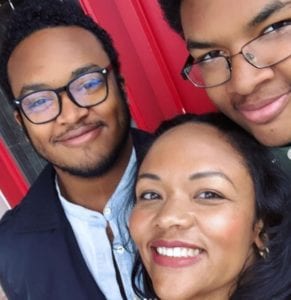
If you produce dope content like content that just feeds somebody, then somebody will use it. And then all of a sudden someone else is saying – hey, was that good? Does she know what she’s talking about? Or blah, blah, blah. Oh yeah. Go watch. And then all of a sudden that person now is like, oh because I was interested in social media, then also they are looking at one video, then they’re listening to your three podcasts and they’re doing this. Then you’re reaching out to say, hey, I want to work with you. And if you are strategic about how you put yourself out there, you might be buying Kinetic Sand, or you might be buying a course, or you might be joining a community group, getting mentorship, all that stuff if the content feeds what you need.
And that’s just the perfect parlay into us talking about social media and its use in business. Let’s dive into that part of our conversation, Cher. I’m so excited to go that because, you know, this is your area of expertise. This is what you do. This is what you help corporate entrepreneurs, professionals, executives do, is how to use social media at work for work. This is your line and I love it. So please, you were going to say something.
Yeah, because this is where we’re at right now. So, there’s a lot of agencies that work at the brand level. What we recognize as well is at the end of the day, people are still doing business with people, that these relationships really matter as far as the brand experience is concerned. How your employees show up online, how they are reaching out and connecting internally as well as externally matters more. In this digital-first environment that we’re in and this is before the pandemic, we were still pre-qualifying people based on what we found on the Internet about them and typically in the professional spaces on LinkedIn. So this is what we need to do. We need to manage that and go beyond a job-seeking mindset. As far as our professional presence online, we need to go way beyond that and think service-centric. When you’re looking for a job, sure, go ahead, go ahead and go fix it so that you can get that job. But outside of that, you should be taking the time to ensure that your presence shows up and reflects what you do now, not what you did to get the job, what you do now because it matters, because that’s why people are looking for you up.
Absolutely. And for anyone that’s not really bought into how powerful the intention of you can be if you know what you’re doing with social media and business. I read an article on the London School of Business website which is entitled `How Will Social Media Continue to Dominate Business Communications`. In there was a line that really spoke to me, which I think is a great way for us to move this conversation forward. And I quote: “Social media has no competitor when it comes to business communication“.
“Social media has no competitor when it comes to business communication“ ~London School Of Business
So although it’s safe to say, that everyone acknowledges that the power of social media in terms of communications is unrivaled, its incorporation into business is not quite that widely known. It’s not quite that widely understood, which is why I’m glad to have you on the show to demystify the mystified, my dear lady. Let me just ask you the first question I want to dive into it. For the uninitiated, why use social media for business, are other forms of outreach enough?
No, because you’ve got to go where your customers are, where they’re having the conversation. In fact, you want to be a part of that conversation. And if you are not visible and your competitor is, who are they going to talk about? They don’t know you, right?
They are not going to hear from you. And so, again, whether you like whether it’s a product, a service, a person, whatever, you need to show up and be a part of it, because so many people are missing out on opportunities, whether it’s a speaking opportunity, whether it’s a consulting opportunity, whether it’s a leadership opportunity or a media opportunity, and they could be missing it, missing out those opportunities from somebody they know.
And the reason why is not because that person who could have extended the opportunity didn’t think that they were qualified for it, is because they were not remembered. They didn’t know to remember you. The social wheel gets the grease.
Right, say that again, lady.
The social wheel gets the grease, this is how you are remembered, this is how the opportunities come up because credibility plus visibility equals opportunity. And that is why social media is that powerful.
“The social wheel gets the grease, this is how you are remembered, this is how the opportunities come up because credibility plus visibility equals opportunity. And that is why social media is that powerful.” ~Cher Jones
Oh, my gosh. I’m getting chill just listening to you. What a phenomenal sentence that one, guys, you need to write down. It’s so, so powerful. Put it up on your whiteboard because it will change the game. Really, because the mindset is important for you to understand and get your head around what is actually happening here. And, you know, Cher is really broken down a lot of that for us. Let’s break down things a little bit further in terms of the business and get in people’s minds wrapped around the business versus the personal. So here’s my next question for you. What are the top three need to knows in terms of the difference between using social media for business versus personal? What would you say?
Yeah, I would think what they need to know is recognizing your audience. I think that’s very important because each network provides a different angle of the 360° view to your personal brand. It doesn’t mean that you have to completely transform into a different person when you’re on LinkedIn as opposed to when you’re on to Facebook, just to give extreme examples. But you have to recognize that your world crossover.
The audience on Facebook is interested in different things than your audience on LinkedIn. And even your audience from Facebook to Instagram. It could be the same people, but their expectations depend on the room. Let’s not call these social networks, let’s just call them a room. If I walk into the LinkedIn room – a little bit more of a networking room. We’re talking about business in this room. You can all of a sudden, you can talk about family, but it has to look for your right point of entry, an opportunity, and probably somehow tie it back to something. I’m not saying you can’t do that, but generally speaking, it’s like what room you’re in, you know, you’re going to talk about in this room.
If you’re out in the backyard at a picnic, you’re talking about different stuff. And we don’t want to hear too much about work. Sure, we want to hear what’s going on. But, it’s all tempered based on where you are. It’s just fascinating, knowing your audience and where they’re at and the mindset that they are in when they’re consuming the content matters. You’ve got to respect the network and the consumption habits of the audience that you have developed and what they would expect from you. So I would say that would be number one.
“You’ve got to respect the network and the consumption habits of the audience that you have developed and what they would expect from you.” -Cher Jones
Number two is that you are the best source of information about yourself. Or you had the best opportunity to really put yourself out there and to tell people what it is you bring to the table. So what I mean by that is you need to make sure that when someone looks you up, they have the language to refer you. Either that or they want to work with you because what they’ve read inspires them to work with you or for you. It’s your job to show up in a way that they either have that language again to refer you or they influence them enough that they want to work with you or for you. And that’s huge.
So you have, especially on LinkedIn and no other network than LinkedIn allows you to do this from the profile, is really break down. What it is you can do to help that person who’s looking you up, or somebody in their network, and how you frame it is rather interesting because you do have to do it from a service-centric framework, because most people now would be something that I really strongly recommend, because most people, they take it from here, all the things I’ve done. No one cares yet. May care eventually if you can let me know how you can help me, and then let me know all the things that you’ve done that you rely on, that you’ll be helping me with as a result.
But you’ve got to reframe it in talking about how you help people and what it is they accomplish when they work with you. As a consultant, as a leader, as an entrepreneur, wherever you are. I need to know that. I need to get that reassurance and then you can talk about the stuff that you’ve done. So that’s really important to how you shop matters.
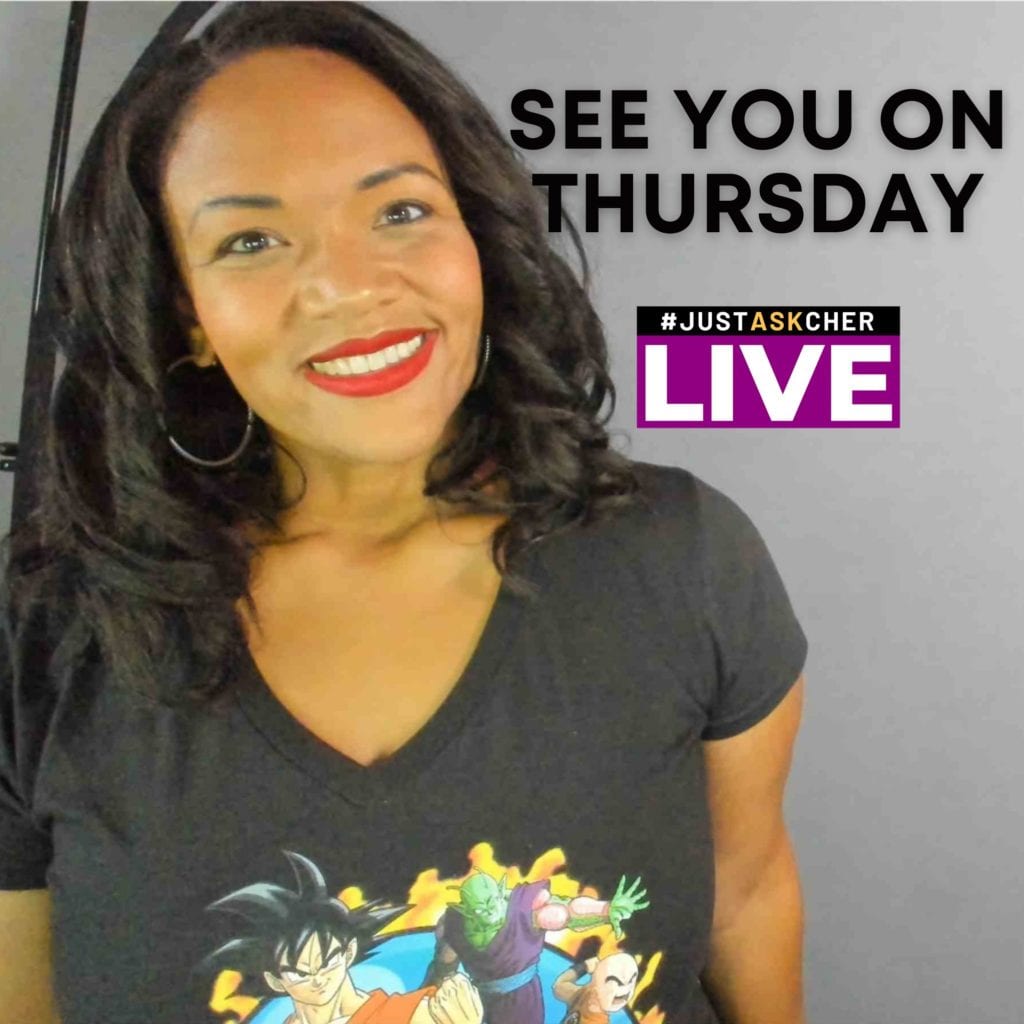
And the third will be to create content. It is so important to do that now, and I want to take the pressure off in the sense of creating content is also with comments. It’s not just the full-blown like, for example, you’re a content creator, you create podcasts, you have videos of everything you write. You’re you’re awesome.
And so are you, my darling.
Thank you. But not everybody can do that. And that’s a real situation. But everybody has an opinion. Everybody can chime in. Everybody can create some sort of content to show up. And you also. If I can add a fourth, because I think this is really important, I don’t know how to separate it. But the fourth would be to focus on relationships. So get in those direct messages, build the relationships behind the scenes, because that’s where the magic really happens. Your content, your profile, that’s all designed to get them to say “Hello”. But you need to go further than that. You need to develop relationships.
And there’s so much that can be done in the direct messaging centers now from sending voice notes to sending to videos, to documents and pictures and all that stuff. You can really accelerate that relationship real quick if you take the time to do it.
Absolutely. So this brings me to this question, Cher. What are some of the specific advantages of using social media for your business that perhaps aren’t available to other consumer reaching tools? I mean, we’ve touched upon a lot of them. Can we maybe encapsulate that a little bit so that anyone’s joining us? I can know what the differences are.
Yeah, I think the number one difference is the ability to communicate in real-time. The ability and we’ve seen this more than anything else, where it mattered the most is, as we’ve gone through this pandemic and being able to communicate to your customers in real-time, as far as your process, how you’re keeping them safe if you’re even open all that stuff. So building those relationships and even outside the pandemic, you get to communicate to your customers in real-time from stories to anything else. And you can show people how things work, how you’re building things, how you are making something like there are so many ways to do it. You can show them the behind-the-scenes of what you’re doing. If you’re getting ready to speak, there are just so many opportunities that you wouldn’t have the ability to do because before social media content, as we call it now, was a production, right?
It wasn’t you didn’t have the ability to publish or post. It was studio time, or writing, editing. Yes, you still to do all that. But it’s like a barrier to creating content. As we know it now is a lot different it was and a lot of people have to recognize there’s a place for both types of content in the business. This is where businesses, especially corporate level, they’re losing the game they’re focusing on published and produced content that requires a significant budget.
And yes, there’s an expectation at the corporate level that we expect this or established business level that we expect this produced content. But we also want to see that original in the moment, content that we connect with on that level that we trust more. And I think that the businesses that embrace that, the businesses that embrace their people as a part of their content strategy and not just in the polished, perfected, perfect lighting, makeup artist editing, all this clearance, and all that stuff. There’s just a huge opportunity to connect with your customers at a deeper level when you talk about content.
You’re so right because, you know, I don’t know about you, but, you know, all of these kinds of TV shows that are like the morning shows and you have like the afternoon shows, you have the, you know, women talk shows and all of these things.
We’ve already talked about it on social media, by the time they’ve curated their languaging around and it’s old and it’s already been already hashed it out. We’ve already gotten everyone’s opinions and we don’t want to see it after the fact. And I feel that that’s the big challenge that the big media houses are having right now, is that they are standing in their own way of success because they don’t want to let go of this behemoth that they’ve created, where they directed the course of what was important to us and not realizing that we actually control our own narrative today. And that’s a big difference too. I’d love your comment on that. I feel like you’ll have a really good one to share.

It’s true. It again, comes back down to that real-time perspective and the fact that I can if something happened right now, if I wanted to, I could go live and start talking about it with my audience and own that. And I think that even so if you have any subject matter experts in your community, which I’m sure you have several, they should be doing that, even if it’s just going live on Twitter or live on LinkedIn or live wherever they are to talk about that. Because they can create media opportunities for themselves if they do that because then the media can see them, how they respond because that’s what we’re seeing. That’s why the media has evolved so much to having just panel after panel of people talking about what’s going on because it’s the easiest to produce.
And that’s why we’ve seen like as we go through the political stage and covering politics or breaking news or anything like that, all they’re doing is they’re constantly bringing in contributing experts to weigh in on what’s going on because then it’s current. And in the moment. It’s so hard to get that breaking news stories, like journalists to have to work twice as hard to get that story out on time. And also it’s the production value can’t be as high as it once was because they have to unless you’re doing an Oprah Meghan Markle interview. And that’s a whole other level. But look at how quickly everybody responded.
Absolutely. Completely correct. And really, the big conversation that took place in the world has been not watching the show, but so much the dialog, the narrative, the opinions, and the pain points and the triggering that has happened since that.
“The big conversation that took place in the world [Oprah’s Meghan Markle interview] has been not watching the show, but so much the dialog, the narrative, the opinions and the pain points, and the triggering that has happened since that” ~Raj Girn
And that, to me, is the story I look for is, OK, this has happened, the interview happened. Whatever it is, it’s like the Oscars happen. What are people saying? Is the what are people saying piece that excites me? And I think really is what excites the world.
Thank you so much for staying until the end, guys. You know that I really hope that you enjoyed the show and that you’ll really use these tips and insights from experience from these great experts that we bring to the table so that you to can really level things up in your professional life, which in turn will really change things when it comes to your personal life. Because at the end of the day, the most important thing is creating a holistic experience for your life.
If any of you doubted the power of leveraging social media strategy in business, I really hope that this 2-part series has been able to swing you over to our side. Even if it’s not your thing for personal use, it definitely needs to be a serious consideration for your business goals. And if you don’t know where to start, why don’t you just contact Cher or me for that matter? And we will definitely love to steer you in the right direction. And if it’s not something that we can help you with, we will definitely find someone that may be the right fit for you. So please do contact us.
If you found the show helpful, I’m so glad and I would love your support by subscribing to this podcast on your Apple and Android platforms. Search ‘The Transform Your Confidence Show’ or our YouTube channel at The Open Chest Confidence Academy. And if you’re an avid reader like I am, we’re also transcribing every podcast into a blog which you can access at The Open Chest Confidence Academy and also please hop over to our private Facebook group at Transform your Confidence whether on networking opportunities as well as knowledge and resources about mindset, media, communications, branding, marketing, leadership and advocacy for busy executives and entrepreneurs who are seeking to elevate the quality of their life.
You know you got to be there. I always pop in and say hello and, you know, just bring questions to the table that are questions that are reoccurring with the clients that I work with. And I really want you to garner the expertise and some case studies that we share now and again. And some case studies that bring to light a lot of these valuable tips. As always, thank you for tuning in, guys, until the next episode. Take care of yourself.
To contact Cher Jones: LinkedIn. Instagram, Twitter, Facebook


